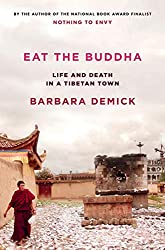Rating: 7.7/10. Summary Book by an American journalist, about the history of modern Tibet, from the 1950s until today. The book focuses on the Ngaba region in Sichuan, which was famous recently for its political activism and monks setting themselves on fire. Ngaba (also called Aba) is technically in the province of Sichuan, but most…
Author: Bai Li
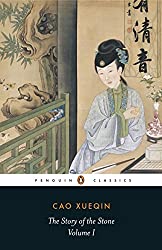
Dream of the Red Chamber (红楼梦) by Cao Xueqin
Rating: 7.2/10. One of the four great classic novels of Chinese literature, written in the 18th century. The novel has several English names: it is most commonly known as Dream of the Red Chamber, but also Story of the Stone. It spans 2500 pages over 5 volumes (David Hawkes’s translation), I got through about 200…
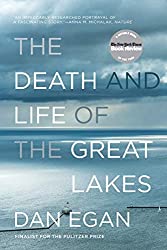
The Death and Life of the Great Lakes by Dan Egan
Rating: 8.0/10. The Great Lakes system contains about 20% of the world’s surface freshwater, but is “ecologically naive”: for thousands of years, its ecosystem has been isolated from the outside world as foreign fish can’t make it through the rapids and up Niagara Falls. This all changed in the 19th century as we opened several…
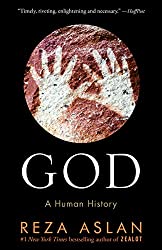
God: A Human History by Reza Aslan
Rating: 7.8/10. A story of how the idea of God developed and evolved, from an anthropological rather than religious perspective. The author is from Iran and was born a Muslim, converted to Christianity, then converted back to a Muslim, so he is familiar with multiple religions. Humans have an instinct to believe in god, and…
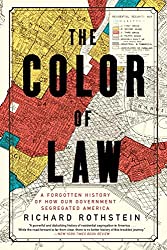
The Color of Law by Richard Rothstein
Rating: 8.4/10. Summary Why is America so segregated? It’s often believed that the segregation is de facto, due to cultural reasons like people wanting to live with people of the same race. But this book argues that this is a myth, and in fact, blacks suffered de jure (systematic and legally enforced) discrimination for many…
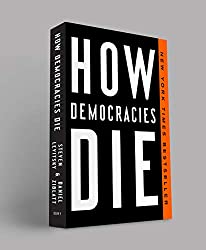
Why Democracies Die by Steven Levitsky and Daniel Ziblatt
Rating: 9.0/10. Trump shocked the world in 2016 when he won the election. How did this happen? This book explains how this result is actually a cumulation of decades of eroding democratic institutions and political polarization. It’s not the people’s fault for voting Trump: several people (eg: Henry Ford) have gotten similar levels of popular…
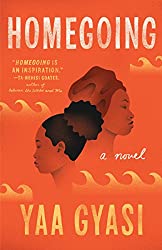
Homegoing by Yaa Gyasi
Rating: 8.3/10. Novel spanning 7 generations, beginning in Ghana around 1760 and following two half-sisters and their family lines. The first sister Effia marries an Englishman in charge of the slave trade; this side of the family remains in Ghana. The other sister Esi is captured and sent on a ship to the Americas; this…
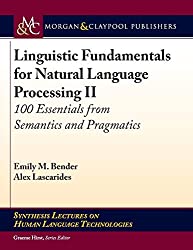
Linguistic Fundamentals for NLP II by Bender and Lascarides
Rating: 7.7/10. Overall an okay but not superb book. The parts about pragmatics were the least familiar to me, but the writing was poor as a lot of advanced concepts were introduced too quickly for me. Ch2: What is Meaning? One way to represent meaning is by assigning logical forms to sentences. Modal logic adds…
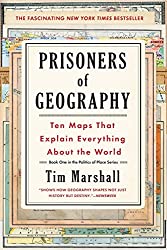
Prisoners of Geography by Tim Marshall
Rating: 7.2/10. Explains how relationships between countries are affected by geography, sort of like the CaspianReport YouTube channel, but in book format. Russia is concerned with getting access to a warm-water port, which explains why they invaded Afghanistan and recently Crimea. Since the fall of the Soviet Union, it’s lost a lot of territory, and…
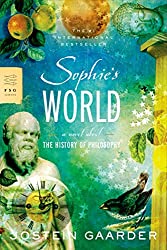
Sophie’s World by Jostein Gaarder
Rating: 7.7/10. Novel about the history of philosophy, set in Norway, in the form of monologues between a 14-year-old girl Sophie and a mysterious philosopher Alberto Knox, who sends her letters teaching her philosophy. This has the purpose of explaining philosophical ideas in the form that a teenager can understand. In the first half of…
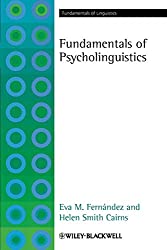
Fundamentals of Psycholinguistics by Fernandez and Cairns
Rating: 8.3/10. Ch1: Beginning Concepts Language has finite rules and symbols, but has infinite generation. Can think of language as a system to connect signals (acoustic, or words on a page) to meaning. This is done through phonology, morphology, syntax, etc. Linguistic competence is the knowledge of a language’s lexicon and grammar; linguistic performance is…
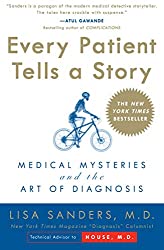
Every Patient Tells a Story by Lisa Sanders
Rating: 7.5/10. Book with collections of diagnoses, similar to the House TV show. There’s not really a central “point” that the book is trying to make, more like a bunch of insights about the art of diagnosis, interspersed with real-life examples of patients with various diseases and how the doctors figured out what’s wrong with…
